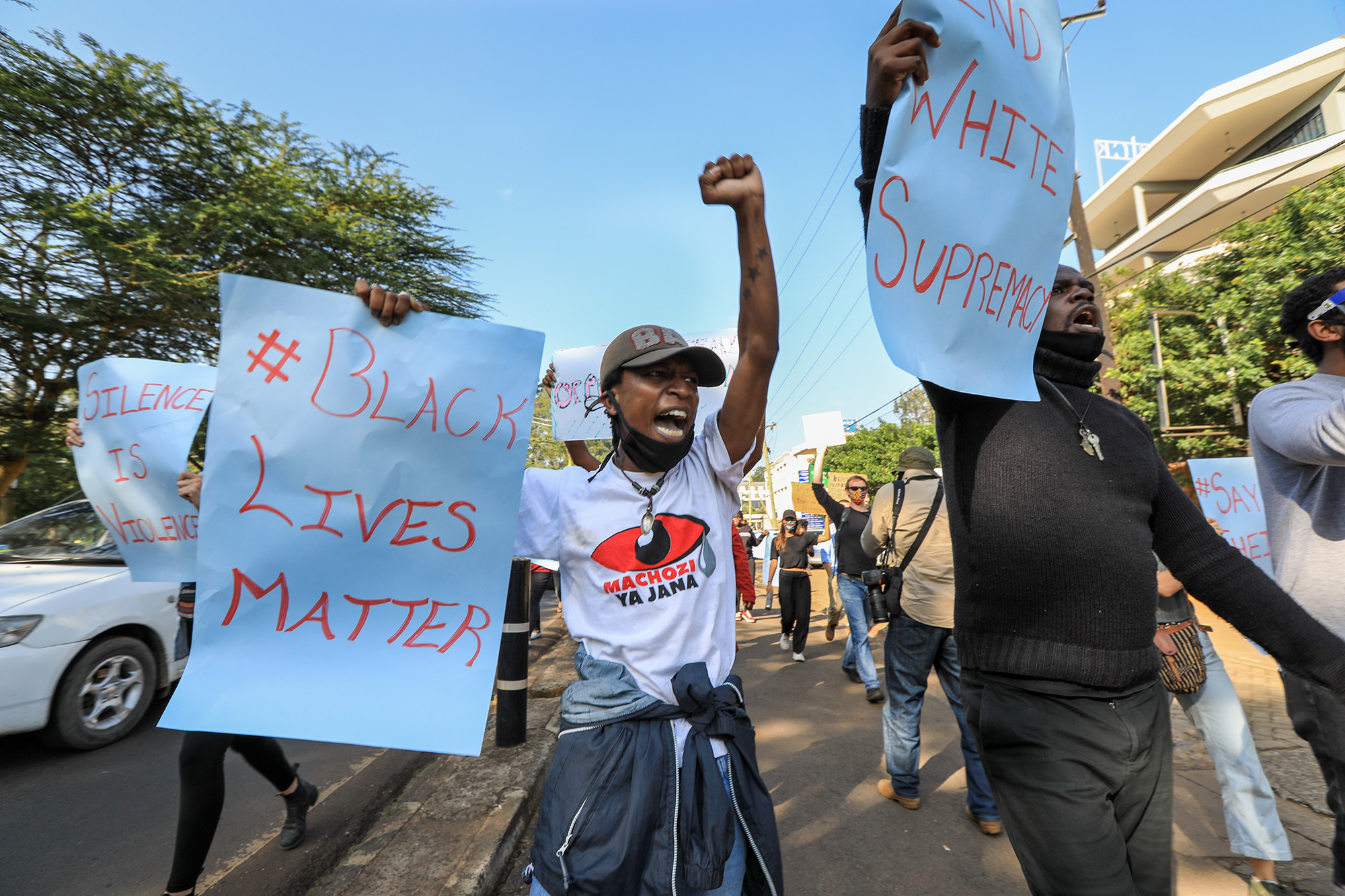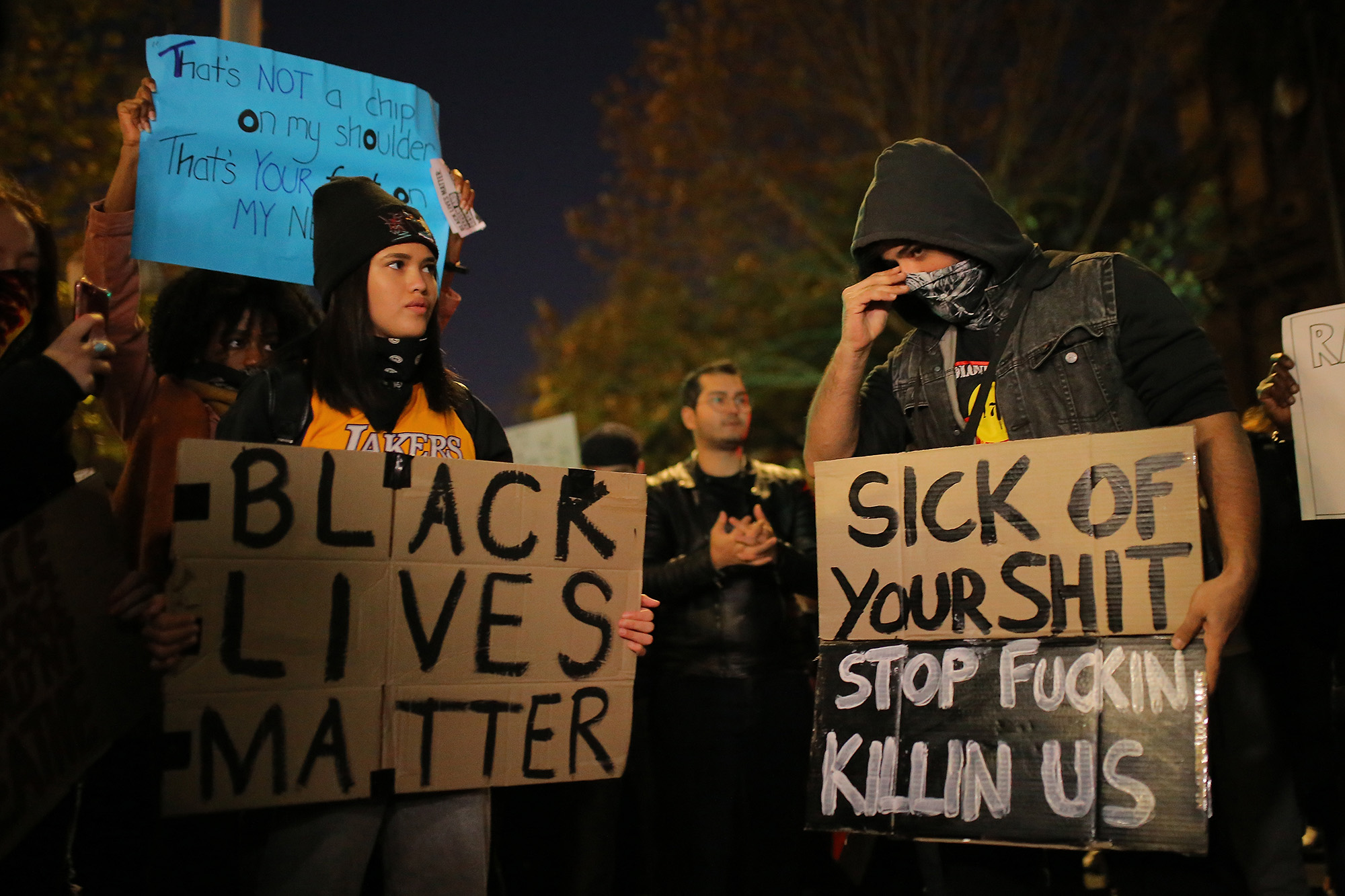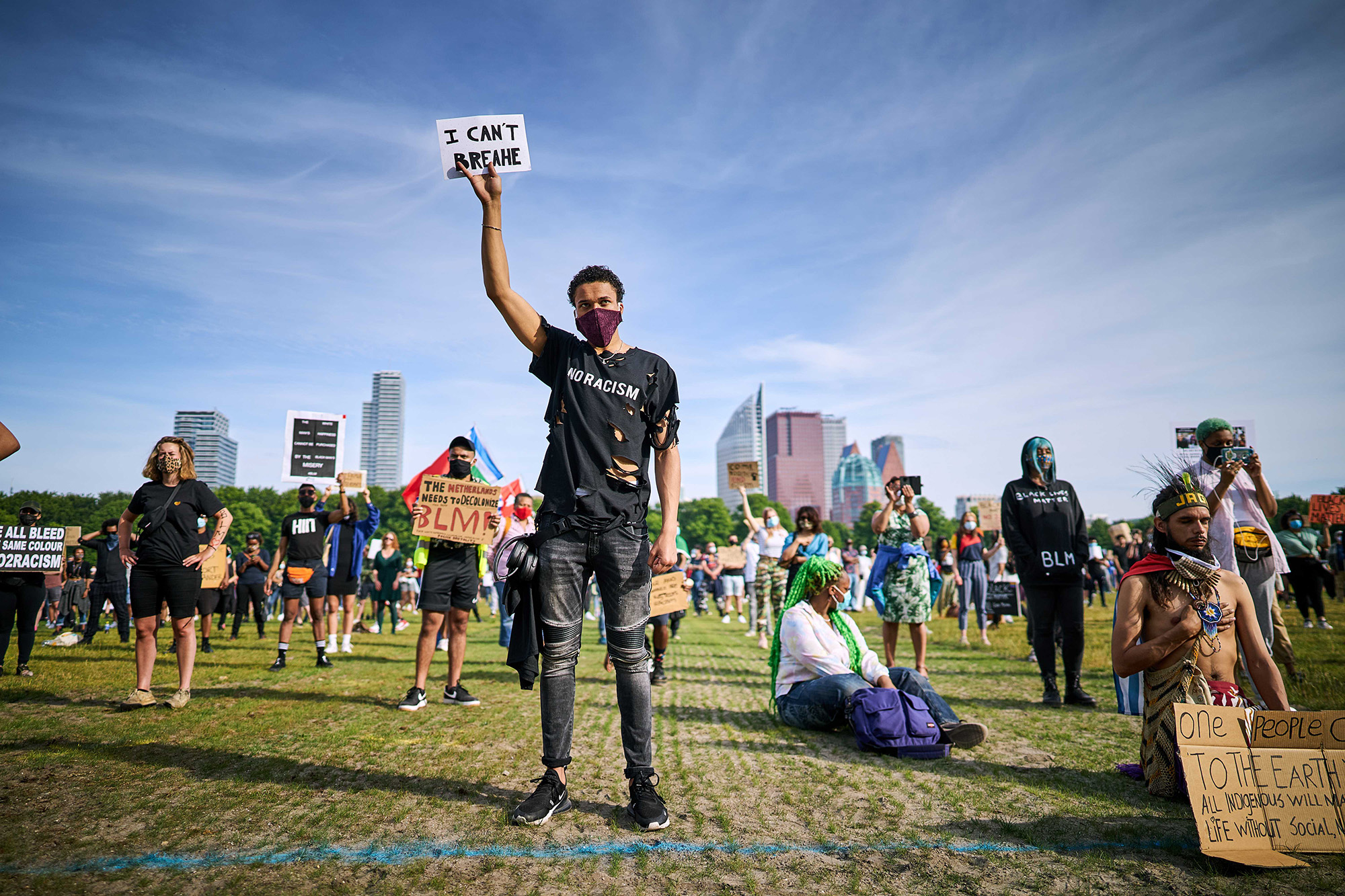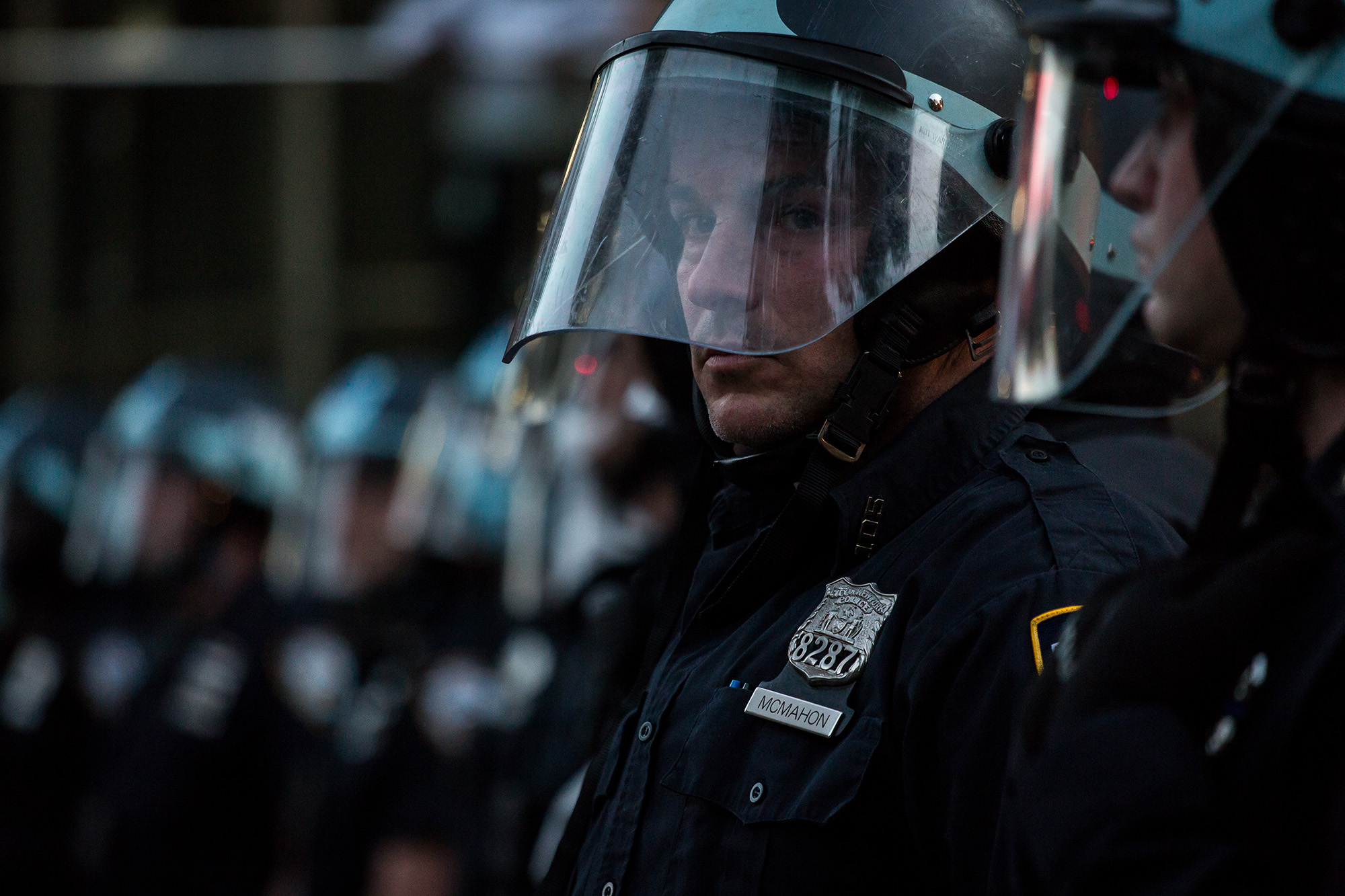In his 1995 book Homo Sacer, the Italian theorist Georgio Agamben writes about people who are reduced to “bare life” because they live outside the protection of the law. In the way the state governs them, they live in the margins of the political community and cannot rely on the protection of the state. This exposes them to being killed on a whim, and those who kill them may not necessarily be prosecuted, or found guilty. A person who has been reduced to bare life is called the homo sacer whose life does not have much value.
The death of George Floyd at the hands of a white policeman in Minneapolis last week reminds us of the homo sacer. The police are supposed to protect citizens and honour their rights even when they are suspected of a crime. Floyd is, however, one of numerous unarmed African American men who have died at the hands of police over many decades. For the most part, the police who are responsible for their deaths are not prosecuted, or are acquitted, or extenuating circumstances to justify their behaviour are found during disciplinary hearings. The killing of African Americans has resulted in the “BlackLivesMatter” movement to resist the normalisation of violence against them. At the core of these killings lies a deep racism that depicts black lives in the US as of little value.

Protesters take a knee as hundreds of them took the street to demonstrate following the death of George Floyd, in Hollywood, California, USA, 01 June 2020. (Photo: PA-EFE/ETIENNE LAURENT)
Last week, Herman Eloff of News24 and Netwerk24 wrote an opinion piece titled “As jy wit is en jy ken nie die naam van George Floyd nie, jy is deel van die probleem” (“If you are white and you don’t know the name of George Floyd, you are part of the problem”). This did not go down well with certain sectors of white society in South Africa. In a WhatsApp video doing the rounds, a white Afrikaans-speaking man asks the following questions of Eloff: “do you know the name of the hairdressers who cannot generate an income right now?”, “do you know the names of farmers who have been killed?” According to the speaker, if Eloff does not know this, he is part of the fucking problem.
In a moving video, Trevor Noah reflects on George Floyd’s death by talking about the social contract that the state has with its citizens. According to this contract, every citizen is entitled to the same protection and the same rights. Yet, every time an African American dies it visibly demonstrates how the state breaks its contract with black citizens. He illustrates his argument with the recent Amy Cooper incident in Central Park, New York. Cooper, a young white woman, was walking her dog, which was not on a leash, in the area where people do bird watching, and where it is mandatory for dogs to be on a leash. An African American man who was bird watching asked her to put her dog on a leash. She then, in a challenging way, said she would call the police and tell them that an African American man is threatening her life and her dog, which she did. (This was all recorded).
Noah makes the point that Cooper knew that police had a contract with her and not the black man, even though she lied. This is the face of racism that is deeply embedded in what many white people think about black people, and how the functioning of the state reproduces and strengthens these beliefs.
Americans are asking “how does the looting and destruction help?” Noah says that that is the wrong question to ask. The question should be “how does it not help?” This is how citizens show that they are not honouring their side of the contract any more, because the American state does not honour its contract with African American citizens.

Supporters of the Black Lives Matter movement shout slogans and hold placards as they protest against the Police brutality in Kenya and USA and in memory of George Floyd in Nairobi, Kenya, 02 June 2020. (Photo: EPA-EFE/DANIEL IRUNGU)
Racism is based on deep-seated beliefs that some people’s lives are less valuable than others, that they are less human. It renders them much more vulnerable to the policing and security arms of the state. Even in the case where a black police person “enforces” the law, as in the case of South Africa, there is the tacit understanding that some lives are less valuable than others. Police brutality in South Africa under the Covid-19 lockdown was meted out mostly against poor black South Africans. The police represent the normalisation of violence that renders certain people outside the protection of the state. It also strengthens the carcerality of the state.
In the US, police killed 667 African Americans between 2017 and 2019 (Statista). (Even though more whites die, African Americans die disproportionately to their numbers in the population.) In 2020 the number already stands at 31. African Americans make up 2,306 prisoners out of every 100,000, while the number for whites is 450 per 100,000; 37% of the prison population in the USA is African American, who are five times more likely to be imprisoned than whites.

People take part in a Black Lives Matter protest following the deadly arrest of George Floyd in Minneapolis, in Sydney, Australia, 02 June 2020. (Photo: EPA-EFE/STEVEN SAPHORE)
The mere fact that President Donald Trump said “when the looting starts, the shooting starts” legitimises police violence. In the past few days the USA has been engulfed by destructive violence in all 50 states. Rather than looking at the causes of the protests, Trump chooses to call protestors “the enemy”, saying he will clear the “battle space” with heavily armed military personnel. He is escalating the violence and militarising the carceral state.

Protesters during a protest on the Malieveld in The Hague, The Netherlands, on 02 June 2020. Organizer Black Lives Matter Netherlands organized the meeting in protest of violence against black people in the US and the death of 46-year-old George Floyd while in police custody. (Photo: EPA-EFE/PHIL NIJHUIS)
Back to the attack on Eloff. The point that Eloff tried to make was that the injustice of racism is a problem for us all, and that white people should take a stand. To set up racist violence against hairdressers losing income or farm killings is to deny the seriousness of the normalisation of racist violence. This is not to deny the seriousness of farm killings, but it is not a matter of knowing the name of George Floyd OR knowing the name of a dead farmer.

A police officer looks on during protests over the death of George Floyd, in New York, New York, USA, 01 June 2020. A bystander’s video posted online on 25 May, appeared to show George Floyd, 46, pleading with arresting officers that he couldn’t breathe as an officer knelt on his neck in Minneapolis, Minnesota. (Photo: EPA-EFE/ALBA VIGARAY)
It should be knowing the name of George Floyd AND knowing the name of a dead farmer. In this way, it makes visible the injustice against those who fall outside the protection of the law and the normalisation of violence against them. DM



















 Become an Insider
Become an Insider